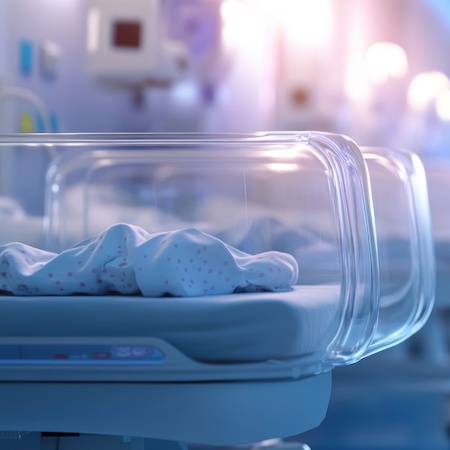In a review of maternity and neonatal infrastructure, NHS England has found a clear link between the condition of service infrastructure and the experience of service users and staff, and safety.
Each day, over 1,500 babies are born in hospitals in England, with one in seven of them needing specialist neonatal care. Both the Ockenden review and the Care Quality Commission’s (CQC) national review of maternity services in England cited how poor infrastructure contributes to significant challenges to maternity and neonatal services, for patients and staff.
This survey is the first of its kind, bringing together Estates leads and clinicians from the NHS England Maternity and Neonatal team, to review and understand service-specific infrastructure. It aimed to establish the current infrastructure baseline of acute maternity and neonatal estate (excluding community-based estate), understand existing estate conditions and develop an approach to understand the investment required to ensure existing estate is compliant with building standards.
Key findings
In the last three years, 14,519 formally reported instances in the maternity and neonatal estate have either led to the interruption of clinical services or service delivery has been impacted as a direct result of poor physical conditions.
Estate-related issues, such as power outages, water leaks and faulty nurse call systems, have resulted in the loss of significant clinical time, putting additional pressure on already stretched staff to provide high-quality and safe care and potentially leading directly to delays in procedures, such as planned caesarean sections.
The most recent version of the Maternity and Neonatal Health Building Note (HBN) was published in 2013. Since then, 35% of maternity and neonatal facilities have undergone some level of refurbishment work, of which 5% included a new build element. Following these improvements, survey results captured that 57% of the estate is compliant in all four safety areas of: electrical, water, fire safety and hazardous substances (COSHH). This level of compliance is expected to increase, with the 2025-26 Estates Safety Fund allocating further investment to Trusts to tackle infrastructure risk and to enhance compliance against standards.
However, over half of organisations reported the formal condition of their maternity and neonatal estate as unsatisfactory, with 42% in need a major repair or replacement and 7% running a serious risk of imminent breakdown.
Significant deficiencies were found in health and safety indicators across the maternity and neonatal estate, with 43% not meeting basic levels of compliance, which is representative of the wider state NHS estate.
Feedback from staff highlights critical challenges related to space, privacy, equipment and wellbeing in these facilities.
Inadequate space for critical clinical activities, such as scanning and birthing suites, reduces staff effectiveness and compromises privacy for women during assessments. 69% of organisations failed to meet the space standards set out in the HBN, and staff feedback makes clear an urgent need for larger waiting areas and other essential facilities.
Lack of storage facilities for equipment and medicines, adding stress to daily activities. 86% of service areas reported insufficient storage to avoid equipment being stored in corridors. This can negatively impact staff and service user experience and can compromise safety and efficiency.
Insufficient rest areas, with 30% of units being found to be non-compliant with the space requirements outlined in the HBN standards. This indicates a significant proportion of units falling short of the prescribed benchmarks for adequate rest area provision.
Poorly maintained physical infrastructure in many Trusts, affecting the quality of care, staff and patient experiences, and overall service efficiency. This includes non-opening windows, peeling paint and mismatching flooring, which contribute to over 30% of negative experience incidents.
Immediate next steps
Together, NHS England, Integrated Care Boards (ICBs) and Trusts will continue to establish systems, standards and ways of working to address the condition of the estate and improve services for patients.
In the immediate term, NHS England will support allocation of capital funds to Trusts to address critical infrastructure risks within their maternity and neonatal estate, and initiate work to modernise the Maternity and Neonatal HBNs’ technical design standards to incorporate new clinical models and other changes aligned with new building programmes.
Trust Boards are asked to review their estate (survey) data and seek assurance that all healthcare premises, from which they are delivering maternity services, are of appropriate standard. This should include a review of community-based maternity services, which were not in-scope of the estate survey. In instances where the estate is not of appropriate standard, they should ensure mitigating action is being taken accordingly.











